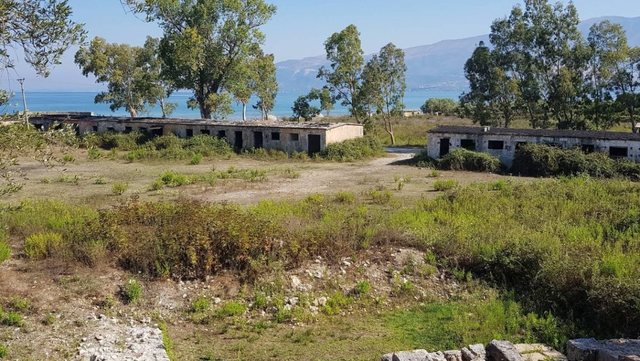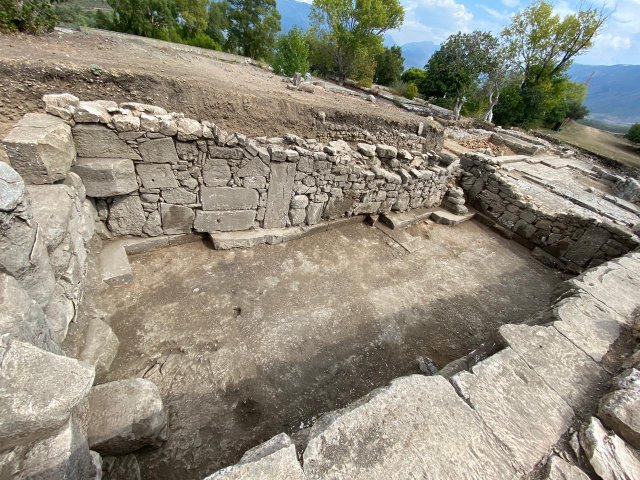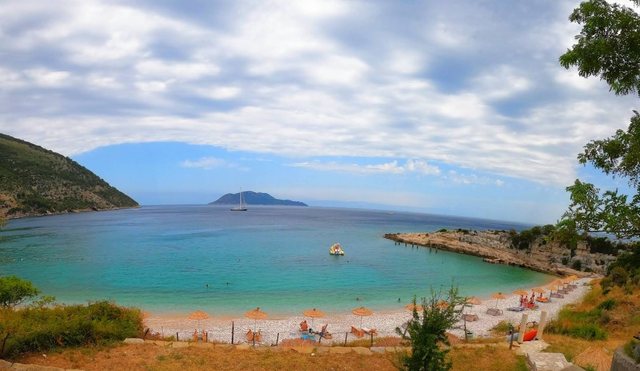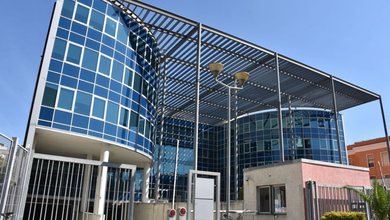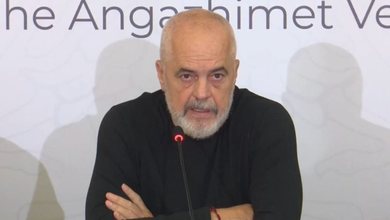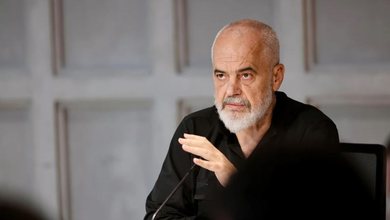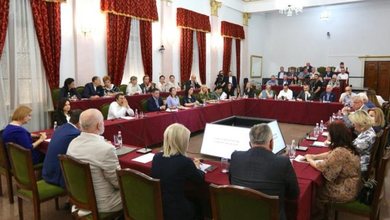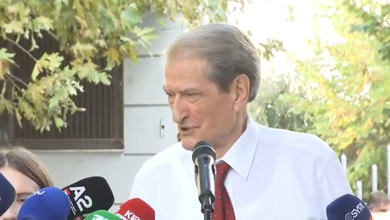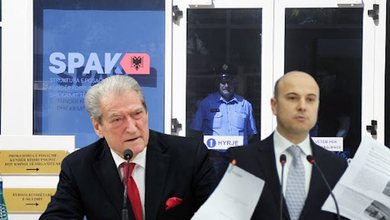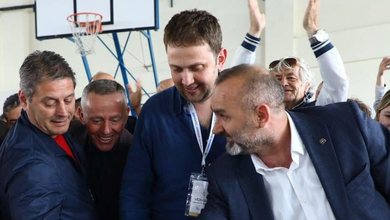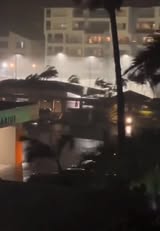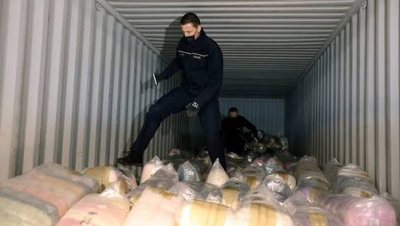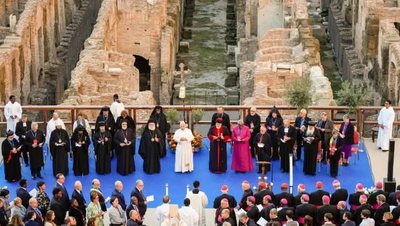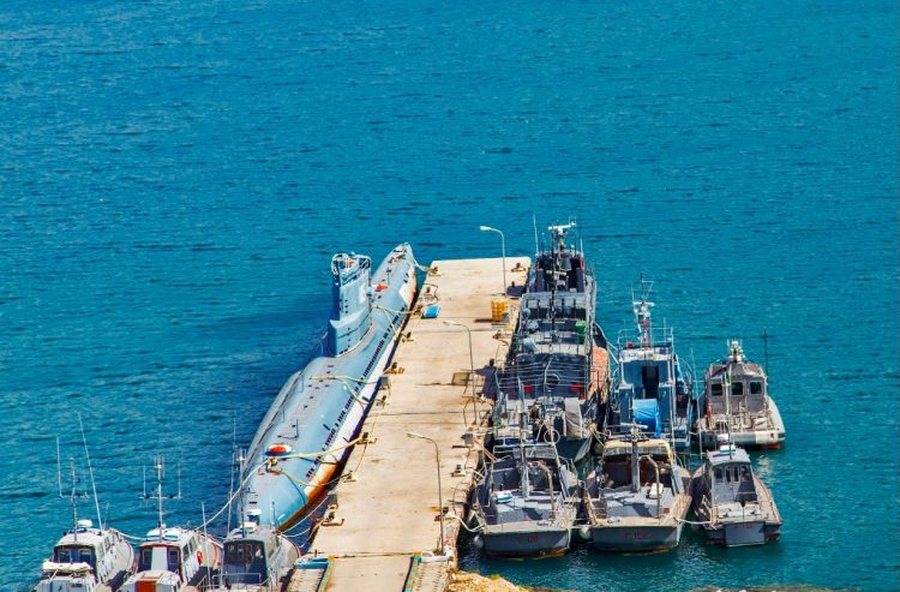
The government grants strategic investor status to an Italian businessman with connections in Tirana to build a tourist resort in an area with triple legal protection in the Bay of Vlora, endangering cultural and natural heritage and the Naval Force base in Pashaliman.
The Orikum Archaeological Park in the Gulf of Vlora offers a unique landscape of green hills, surrounded by the Ionian Sea, the Pashaliman lagoon and the Karaburun peninsula.
Founded in the 6th century BC, the ancient city left its mark on history during the Roman civil war in the mid-1st century BC, as a destination that served as the rise of General Julius Caesar to absolute power in Rome.
Due to its geographical position, the bay on the edge of Karaburun is thought to have been used as a naval base from antiquity to the present day.
But now, the Albanian government intends to build a massive tourist complex there, which will be inserted like a 'bull in a glass shop' in the middle of an area with triple protection due to the values of cultural heritage, natural habitat and the active naval military base of Pashaliman.
Recently, the Strategic Investment Committee headed by Prime Minister Edi Rama has granted “strategic investor” status to an Italian entrepreneur to develop a tourist resort project on 25 hectares of public land bordering the Pashaliman military base – a key point for the Albanian Navy.
According to the decision, the project's footprint overlaps the ancient city of Orik, a first-category cultural monument, and the lagoon to its southeast, while beach stations for resort clients are planned to be built a few kilometers further on the western edge of the Karaburun peninsula – at Cape Shëngjergjit – also a protected area as a category IV Managed Nature Reserve.
“This project violates all the laws of natural heritage and cultural heritage. It violates everything,” Taulant Bino, an environmental activist and head of the Albanian Ornithologists’ Association, AOS, told BIRN. “It seems to me that strategic investment is above every other law in Albania,” he added angrily.
The “Pashaliman Laguna Eko Resort” project is being developed by the company “Meta Resorts Albania” owned by Dante Mazzitelli, a builder and owner of a local television station in Bari with a troubled history of confrontation with Italian prosecutors in recent years. He has been investigated for suspicions related to corruption and fraudulent bankruptcy procedures, but in both cases, the court dismissed the charges.
Data obtained by BIRN shows that in setting up his business in Albania, Mazzitelli was assisted by Laura Plaku (Saro) - head of the Albanian Investment Development Agency, AIDA, since September 2023.
In her capacity as director of AIDA, Plaku also heads the Technical Secretariat of the Strategic Investment Committee. When questioned by BIRN, Plaku claimed that she had no financial relationship with Mazzitelli's company and that she was not in a conflict of interest for the position she currently holds.
The Prime Minister's Office did not respond to BIRN's questions by the time this article was published. Mazzitelli was unavailable, while questions sent through the representative studio in Tirana did not receive a response by the time this article was published.
The breach of Pashaliman's base
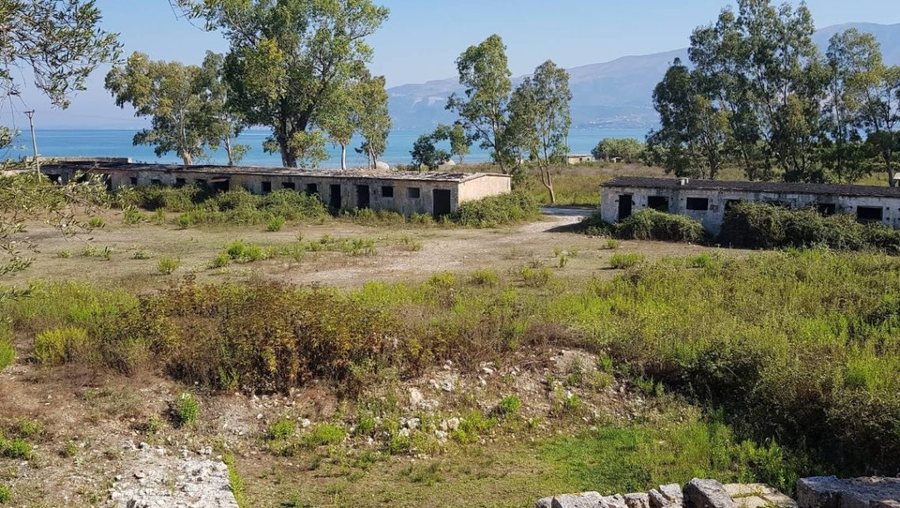
The Pashalimani base was built in the 1950s in communist Albania, when the Soviet Union brought in 12 submarines and turned it into the only naval base it controlled in the Mediterranean. After the breakdown of relations between Tirana and Moscow in 1961, Pashalimani remained as a military naval base housing the remaining four submarines and other small vessels.
The base was looted during the 1997 unrest and three of the submarines were sold for scrap. But its territory remained intact and part of the Armed Forces Deployment and Deployment Plan for more than two decades – a status that protects the Ministry of Interior’s inventory properties from alienation.
However, this did not last forever.
Just seven months ago, part of the 25-hectare area where the "Pashaliman Laguna Eko Resort" project is expected to be located was left out of the Deployment and Deployment Plan of the army forces, through a decree of President Bajram Begaj that is kept "secret".
According to the decision of the Strategic Investment Committee, the project footprint affects property no. 1314 of the Ministry of Defense, known as the former Southern Naval Flotilla in Pashaliman, extracted from the Settlement and Dissemination Plan by decree no. 24 of February 3, 2025.
The tourist project also affects other military facilities, important for the functioning of the Pashaliman naval base.
"Within the targeted investment area is located building no. 25, which is used by the Land Force Command, Substation and Electrical Cabin, from which the Pashaliman Naval Base is supplied with electricity and is in common use as the main access road to the Shipbuilding and Repair Yard (SDR), the Southern Maritime District (SMD) and private entities that carry out various activities on the Karaburun peninsula," the KIS decision states.
Praising Pashalimani as the main base of the Navy and a strategic space for the defense of Albania, former head of the Navy, Artur Meçollari, told BIRN that this decision undermines national security and relations with NATO.
Meçollari recalls that since 2019, the Ministry of Defense has offered the NATO Supreme Command the Pashalimani naval base and the Bay of Vlora as a NATO naval base, an offer which was later publicly repeated by Prime Minister Edi Rama in 2022.
"But in February 2025, Bajram Begaj removed 80 ha from the Action and Expansion Plan for the Pashaliman naval base, leaving the base with only 14 ha. At that time, they probably hoped that NATO would turn its eyes to Porto Romano," said Meçollari.
"The question arises: now that the Pashalimani base has been reduced to 14 hectares, what will NATO do," he added, emphasizing that "corruption is undermining the operationality of the Navy, but also relations with NATO."
Connections in Tirana
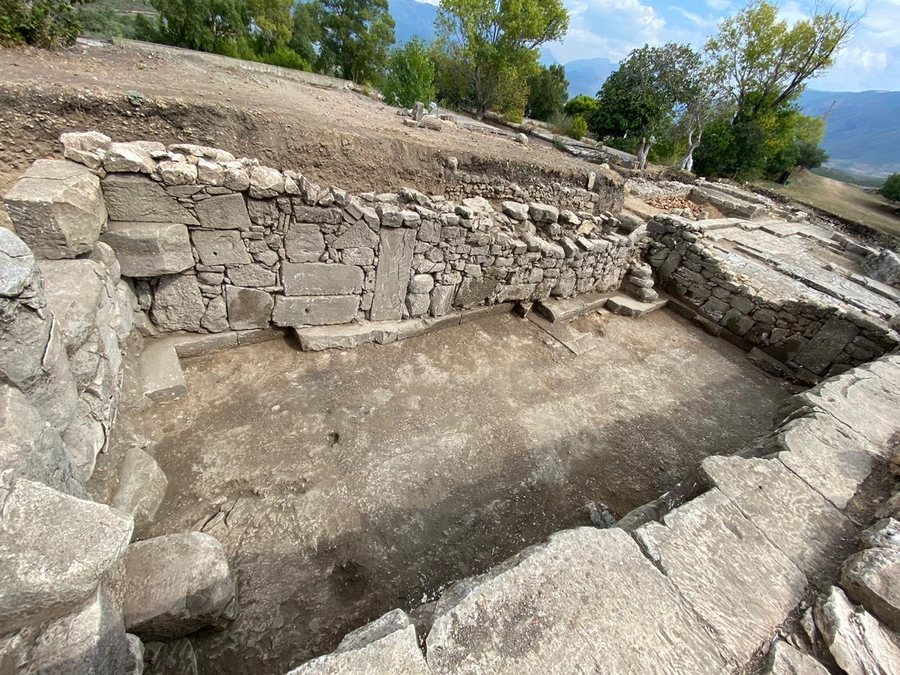
Dante Mazzitelli, 70, is among the few foreign entrepreneurs to have been granted “strategic investor” status by the Rama government through his company Meta Resorts Albania. Founded in June 2021 with the aim of investing in the tourism sector, the company with a capital of 100 lek does not appear to have carried out any activities so far.
Across the Adriatic, Mazzitelli and his family are well-known builders in southern Italy, as owners of the Metaresorts hotel chain and the Telebari television network. However, their company, Construzioni Generali, recently faced legal action after an investigation by the Bari prosecutor's office raised suspicions of intentional bankruptcy and asset displacement.
The charges were dismissed in July 2024 by the Bari Court, but the latter also obliges Mazzitelli's company to financially guarantee the repayment of debts to third parties, following the decision to restructure the debts.
Previously, Mazzitelli has been criticized by the Italian media for concrete constructions on the Amalfi coast, a lawsuit related to public housing from which he was acquitted, and for hosting former Prime Minister and leader of the Democratic Party of Italy, Massimo D'Alema, at his hotel in Switzerland in 2011.
Mazzitelli has visited Albania before, but traces of his involvement in the business date back to 2021. According to the NCC extract, Meta Resorts Albania was assisted by the current director of AIDA, Laura Plaku (Saro) and her legal consulting company, PCG until November 2023, when her name was removed as a contact person from Mazzitelli's company.
Plaku was elected head of AIDA in September 2023, putting her consultancy firm, PCG, into liquidation. Her name as the contact person at Mazzitelli's Meta Resorts Albania was replaced with the Haloçi studio of Majlinda Haloçi, an accountant who also serves as administrator of the consultancy firm that former Italian Prime Minister Massimo D'Alema founded in Tirana.
Plaku denied having any role in granting "strategic investor" status to the company Meta Resorts Albania through a text message communication with BIRN.
"No relationships that constitute a conflict of interest for the position I currently hold," she wrote.
Asked by BIRN whether Mazzitella's business had any connection to D'Alema in Albania, Haloçi said she was a consultant and only dealt with the companies' fiscal obligations procedures.
"I have no status or knowledge to help you with information like who is before or after," she said.
'Unique case'
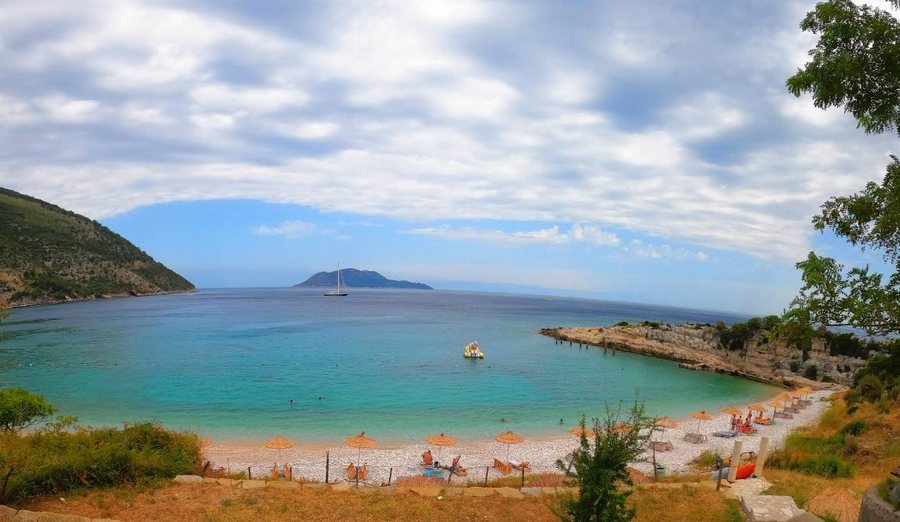
Approved in 2015 by the Rama government, the “Strategic Investments” law has contributed over a decade to the concreting of the southern coast with residential and tourist resorts by a group of businessmen close to the government, without sparing the ecosystem and protected habitats. But the impact of “Pashaliman Laguna Eko Resort” exceeds previous projects.
According to the decision of the Strategic Investment Committee, the state foresees participation in this investment, while it is estimated that it will not have an environmental impact. The project of the Archea Associati studio of architect Marco Casamonti foresees, according to the decision, the restoration and renovation of existing structures and the construction of wooden accommodation structures, which will be placed "on floating platforms (stilts) in the Pashaliman Lagoon.
But experts in the field and environmental activists told BIRN that damage will be inevitable.
“In my opinion, such a project should not be carried out, because it would ruin the entire historical landscape of the site, where archaeological, environmental and military heritage are intertwined,” archaeologist Saimir Shpuza, co-director of the archaeological mission in Orik, told BIRN.
"According to the document, it seems that the construction of wooden houses in the lagoon will not interfere with the hill where the site is located, if we do not forget that on the other side of the lagoon is the city's necropolis. In addition, the military buildings that are required to be revived are adjacent to the city's perimeter wall and surround most of the site, which in itself is a public asset," he added, emphasizing that many archaeological structures have also been documented in the lagoon.
For architect and urban planner Doriana Musai, the project is the most extreme example of the conflict between economic development and the protection of public assets. Musai points out that the luxury tourist project is inserted into a triple protection zone, creating a dangerous precedent of mixing commercial tourism with security infrastructure.
"The concept of 'rejuvenating' heritage risks turning into a commodification of archaeology, erasing the authenticity of Orikum as an ancient city and using it as decor for the resort's clientele," said Musai.
"This type of intervention is a unique case in the world, where tourism structures are introduced into three protected areas, not only annexing territory, but also causing damage," said Musai.
Even the head of AOS, Taulant Bino, is concerned about the project, which according to him conflicts with the Cultural Heritage law and risks turning one of the "most unique lagoons in Albania" into an urban environment.
“The damage is immeasurable and unfortunately, with the adoption of the new law on protected areas, there is no longer any obstacle,” Bino said. “If there were a mechanism for stopping, for protection, it would have been before the decision of the KIS was given, because if it was given, no one would oppose it,” he concluded./BIRN/


